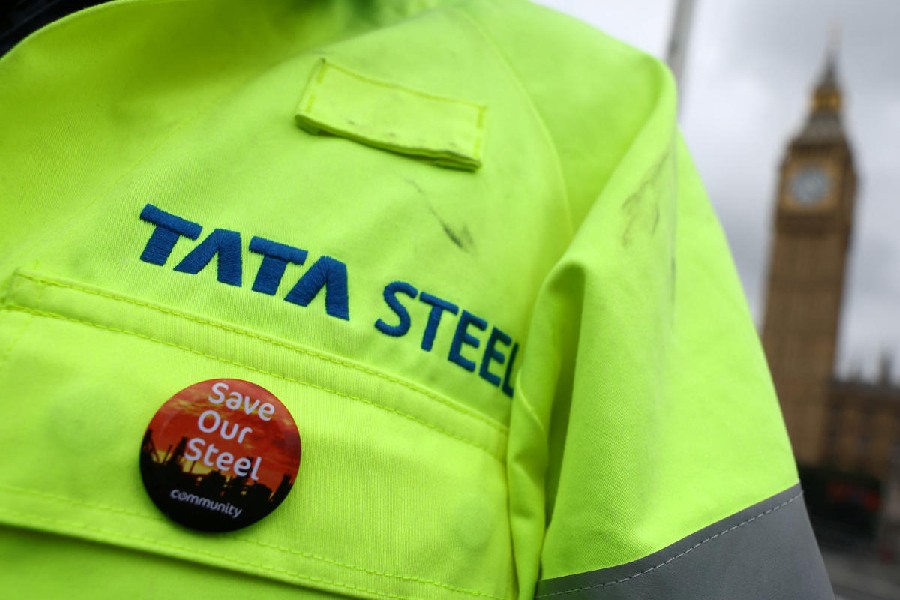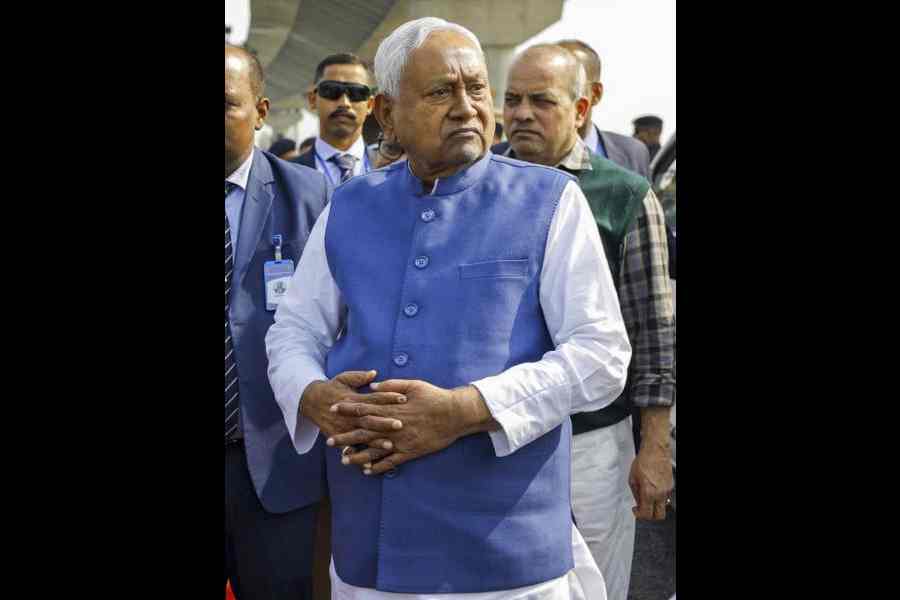Tata Steel Europe, which has been a bane for the Tata Steel group ever since the acquisition of Corus Group Plc in 2007, has reported a 55.1 per cent decline in net losses in FY25 on the back of an improved performance from the Netherlands even as losses remained elevated due to weaker British business.
TSE reported a loss of ₹8,799 crore in the year ended March 31 compared with a ₹19,603-crore loss in the previous year. It was the third successive year of losses by the European subsidiary after posting a profit in FY22 when it had gained from the post-pandemic rebound in the business.
At the operational level, TSE more than halved losses with EBITDA of ₹3,327 crore, compared with ₹7,612 crore EBITDA loss in FY24. The narrower losses at Europe allowed the Tata Steel group to return to black on a consolidated basis with a profit of ₹3,174 crore compared with a loss of ₹4,910 crore in FY24.

Tata Steel said the significant reduction in EBITDA loss was due to an improvement in Tata Steel Netherland’s performance which was adversely impacted in FY24 due to the reline of a blast furnace. TSE’s crude steel production stood at 7.82 mt while deliveries were at 7.97 mt.
In contrast, Tata Steel UK reported a higher EBITDA loss this year, primarily driven by the closure of existing ageing assets whose cost structure was further impacted due to lower volumes, whereas fixed cost reductions were targeted only after the closure.
In the UK, Tata Steel is working to build an electric arc furnace (EAF) of 3 million tonnes at an investment of £1.25 billion, which includes a £500 million grant from the UK government. TSUK reduced fixed costs by £230 million after closing down the polluting blast furnace operations.The company said it plans to bring down fixed costs further from £762 million in FY25 to £540 million in the coming year.
In the Netherlands, Tata Steel said it is preparing to transition to direct reduced iron (DRI)- EAF based production process and in talks with the Dutch government for funding support similar to what it has received in the UK.
In a parallel, TSN has launched a cost transformation programme targeting €500 million in savings by FY26. This transformation plan focuses on improving volume maximisation, optimising product-mix, enhancing maintenance practices and boosting employee productivity.
Neelachal Ispat
Tata Steel’s consolidated results were also backed by a turnaround by Neelachal Ispat Nigam Ltd (NINL), which the company had acquired in July 2022. Losses from long steel producer based in Odisha, reduced to ₹167 crore in FY25 compared with ₹960 crore in FY24. However, at the operational level, EBIDTA has increased to ₹1,067 crore, up from only ₹53 crore a year ago.
NINL, which is the next pitstop for Tata Steel’s domestic expansion plan, produced 0.95 mt steel, up by 44 per cent from the previous year. Tata Steel said NINL would play a critical role in Tata Steel’s long product growth aspirations as it gets transformed into a state-of-the-art long products complex.











